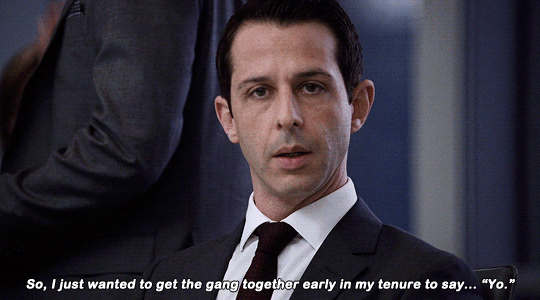The Rigged Game: How the System Benefits from the Childfree vs. Parents Divide
It's a feature not a bug
This post may contain affiliate links. For more information, please see my Disclosure Policy.
Did you get your rest yesterday? I hope so.
In the most recent episode of La Vida Más Chévere, I theorize that what’s really driving the cultural narrative that childfree people hate kids is the patriarchal system that pits parents against non-parents.
If we actually took a step back, we’d be laughably appalled at how naked and obvious the end goal of this absurd idea is. Because who wins that argument?
It’s certainly not us, every day people like you and me. The only winner in a rigged game is the system that allows for it to run as it does. Like they say in gambling, the house always wins.
Put another way, my dad has always said, “follow the money.” In gambling, only one entity is guaranteed to make money: the house. Who always wins.
It’s easy math. The house = the patriarchy.
We are all subjects of the patriarchy. And it has nasty little ways to ensure we stay locked in the illogical and pointless idea that not wanting kids automatically equates to hating them.
And while plenty of people do not like kids, not all of them are childfree. Which is both scary and sad for those people’s children. Not to mention the ripple effect that it has on society at large.
I hosted a discussion on the topic with both moms and childfree advocates, now available on YouTube. We discussed a crucial lack of empathy, the tendency towards binary thinking, and a host of other roadblocks that society creates towards harmony.
Which are features of patriarchy, not bugs. It’s designed to do this, yo.

To break it down further, three ways this idea that childfree people hate kids is most obvious are in:
Our cultural norms, especially the ones centering “traditional values”
Regret: the r-word that parents aren’t allowed to express
Media portrayal
These all feed into one another. The way that parents are made to feel and the way that the media normalizes crap are all due to our cultural norms.
So stay tuned for later this week for more on points 2 and 3. Today, let’s tackle cultural norms.
Quick note: I’m sure you can think of a number of other reasons, and I invite you to leave it in a comment of this post. ⏬
Cultural Norms
First, let’s start with a definition. Cultural norms are those traditions and customs that we all follow as part of the social contract, and they’re usually more implicit than explicitly written down but baked into almost everything we consume.
You can think of it also a life script of expectation: you’re born, you go to school, then college, you find a nice partner, you marry, you get a house, a dog, a few kids, work for 40 years, and then…you die.
Anyone who colors outside those lines or flips that script is then seen as a rebel, or maybe even a traitor. And if you don’t hit the right milestones by a certain point (meaning, when everyone else is doing it) then you’re the problem. You’re a failure.
That’s one of the reasons I wrote Benchmarks are Bullshit: to keep people from falling into the trap of believing they’re a failure because their life didn’t work out the way it was supposedly prescribed to.
The patriarchy sets us up for failure. The life script is NOT a guarantee of happiness in any way, shape or form. Remember, the house wins either way. Patriarchy wins if you feel like you’ve lost.
For a more formal definition, this is from The National Academies’ workshop Addressing the Social and Cultural Norms that Underlie the Acceptance of Violence:
Social and cultural norms are rules or expectations of behavior and thoughts based on shared beliefs within a specific cultural or social group. While often unspoken, norms offer social standards for appropriate and inappropriate behavior that govern what is (and is not) acceptable in interactions among people. Social and cultural norms are highly influential over individual behavior in a broad variety of contexts.
Peep that title again. Yes, there are social norms that allow for us to make violence acceptable. How often have you heard a story about a person who suffers abuse at the hands of their partners, but stays in the relationship because “divorce isn’t an option.” Hmm?
Or, to focus the discussion back on children: what have we done to protect them from school shootings?
So what are the cultural norms that center the traditional nuclear family?
marriage
traditional gender roles
the emphasis, and not just in Latindad, on intergenerational support
Marriage
One of the big bingoes—a bingo is one of many super pervasive questions and comments that childfree people get hit with so often, we could play a game of bingo and just cross them off as we go through the conversation.
Anyway one of the big bingos that we childfree people hear is “why are you getting married if you’re not having kids?” In a “traditional” view, the “social norm” is that marriage is a only between man and a woman and they bear kids to continue to grow the population.
It’s the same kind of traditions that certain religious ideologies want to see codified into law. When what these “traditions” really are is simply a mask for misogyny, plain and simple.
This traditional view of marriage also negates all the added benefits of marriage like:
companionship
improved health because you’re likely to live longer if you’re married
financial stability
great legal and tax benefits
sexual fidelity because shared intimacy is also nice (granted, it's not for everyone, and guest Rena Martine talks about the opposite of that, but it works for some people)
Plenty of people have kids without getting married so that right there is a shot against that idea. And nowadays, an individual can choose to have a child all on their own without another parent, regardless of gender.
I’d bet you dollars to donuts that more of those children grow up in healthy and happy homes to become well-adjusted and successful members of society than their counterparts.
This idea that marriage is for making babies simply doesn’t hold water anymore. You marry a person, not a baby-maker.
Gender Roles
“Traditional” gender roles can be suffocating for women. Honestly, what did we spend the last 100 years fighting for if this bullshit is still gonna exist nowadays???
Recently I was confronted with a ridiculous statement coming from another woman. She said that we women “should shut up already and stop fighting for the right to work and equal pay because who the fuck WANTS to have to work anyway? Stop saying you WANT the right to work.”
😡😡😡
Imagine being so narrow minded that you think all women GET to make that choice. But folks, that’s what you get with the “traditional values” set of people. Do you realize how dangerous that ideology is yet?
I’m here to fight for for the women that don’t get a choice or a voice, to get better pay, to have better opportunities for advancement, and not have to be the ones worried about making a plate for your partner to eat when we’re all at a party. He’s got two hands, he can feed himself. Or she can feed herself. Or they.
You know what I’m sayin’. Gender norms, they mostly suck.
Also, if a woman WANTS to stay home and can, I support that for her too. This is about having the choice and being treated like an equal human being. I don’t get why that’s so hard to understand.
But I’m working on my own internalized misogyny so maybe that’s why. I highly recommend everyone does it.
Intergenerational Support
Americans and Latines differ on this because multi-generational homes are more often seen in Latine cultures than American homes. But one bingo both sides like to throw out there is, “Who’s gonna take care of you when you’re old?”
As if children are the insurance plan for old age.
They used to be, sure. And some societies still venerate their old people. They’re not simply discarded because they lack youth and beauty, but honored for the wisdom they’ve acquired.
Latinidad is better at this than American culture where the “it takes a village” approach is still alive and well.
But nowadays we also have choices. Are you sensing a theme here?
I love this response to the question from CF.Sammy on Instagram. In case you can’t see it, it says: who’s gonna look after me when I’m older? It’s the same people who will be looking after you because your kids will be too busy living lives of their own.
A redditor tried to argue this point against me. He thought I meant it’s okay to expect that other people’s kids take care of all of us. I had to explain to him that someone’s kids are going to choose to become caregivers and they will be paid as such, not tricked into it by their parents.
Remember that binary thinking I mentioned from the YouTube video? This redditor is a product of that. Nuance, it’s magical. /s
If we’re lucky smart, the money that my last guest Linda taught us to put in the stock market is going to net us a nice retirement and maybe even slightly better care.
Because if you go check out any nursing home and you’ll find that up to 60% of the population there is neglected by their family.
So much for that insurance plan!
To wrap up, the system is rigged. Which is another point that guest and author Linda García points out in her book, Wealth Warrior. Otherwise, there’d be a hell of a lot more people of color enjoying wealth in this country.
You know, the same country where the highest court in the land just removed a key step toward that reality.
L’sigh.
Later this week we’ll explore how these cultural norms impact parental regret and how all of this nonsense is perpetuated by our media. Because after all that, what does the system, the house, the patriarchy actually win?
I’ll answer that next time.
In the meantime, get some rest. That’s a burrito.🌯🌯🌯
Listen on Apple:
Listen on Spotify:
Even “watch” on YouTube:



